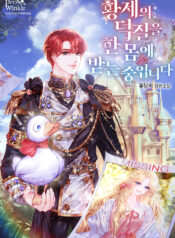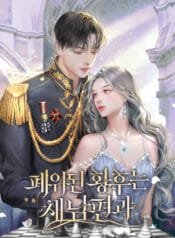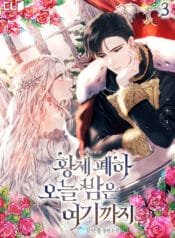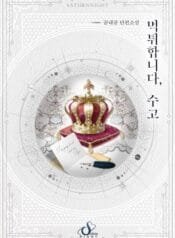Sinclair’s mother had been a gypsy.
She had wandered across the continent until she met a man, fell in love, and settled in Edelin. But her marriage was an unhappy one. His father disliked her free spirit—no, more precisely, he feared it.
She could not accept her unhappiness. The very nature that had once made her husband fall in love with her had, with time, become the reason for his loathing. Unable to understand it, she withered, shut away in the house, like a plant left without water.
One day, she showed young Sinclair a violin she had kept hidden. It was the instrument she had once played during her wandering days.
“Sinclair, do you know what the gypsies call their violin?”
She whispered softly as she caressed the instrument, which she had secretly cared for all this time behind her husband’s back.
“They say it’s the violin the devil made.”
“And then what?”
“The boy who received that violin from the devil only realized his sin afterward. For the sake of his love, he had abandoned his family, and he could never forgive himself. Because of that, he could no longer love the girl either.”
Perhaps thinking of her own life—how she had abandoned everything for love and settled in Edelin—his mother smiled faintly, tinged with sadness.
“The boy threw the violin away in the forest and vanished. Years later, someone found it. They said when that violin played a sad song, everyone wept, and when it played a joyful song, everyone laughed. Even the animals, the trees, the wind itself wept and laughed with its sound.”
“……”
“That’s what a gypsy’s violin is, Sinclair.”
She only smiled—and cried—when she drew the bow across the strings. And every time, Sinclair smiled and cried with her. For his mother was one who played the devil’s violin.
***
Sinclair grew older. When his fingers were long enough to press the strings, his mother secretly began to teach him.
“You mean to raise him as nothing but a filthy gypsy brat?”
The day his father caught sight of him with the violin, he exploded with fury. That day, Sinclair had forgotten his mother’s warnings not to let his father see him play. Drunk on all the liquor in the house, his father beat her and stormed out.
The chair he had hurled would have struck Sinclair, had his mother not thrown herself in its path. Her fingers broke beneath the impact. She never bothered to have them treated. Sinclair wept as he held her twisted hand, but she remained strangely calm.
His father never came back. Sinclair felt only relief. The house was no longer frightening, and now he no longer had to hide when learning the violin.
He practiced diligently. And though her ruined fingers could no longer play, his mother laughed and cried as she listened. That was when Sinclair realized, he too had become one who played the devil’s violin.
In the bitter winter, his mother passed away. They were poor, and the cold was merciless. With her damaged hand, coughing blood, she found no place that would take her in. Mother and son clung together, sharing what little warmth their bodies had to give.
A priest, pitying them, told Count and Countess Weiss of their plight. When Leda’s parents came rushing to the hut, they found Sinclair’s mother already dead. He was huddled against her cold body, asleep, unaware.
That day, after digging into the frozen earth and burying her, Sinclair clutched the violin and wept. The devil’s violin—her only keepsake, the one thing she left behind.
***
The lords of Edelin, Count and Countess Weiss, were good people. With Sinclair left alone in his shabby hut, they took him in and raised him. Within the castle walls, he lived under the countess’s care, carrying out the small tasks she entrusted to him.
They had not forgotten to ask him one more thing: to be a good friend to their daughter, who was the same age as him. For a lowly orphan with a gypsy mother, it was far more kindness than he deserved.
On the day he was first invited into the castle, Sinclair heard the sound of a piano from the drawing room. Hidden behind the instrument, a very small girl was striking the keys.
“My feet can’t reach the pedals!”
She chattered. And the moment she noticed him, she leapt down from the chair and ran to greet him.
Her light blond hair bounced prettily with each step. From the fireplace came the crackle of burning logs, louder than before. Perhaps it was the chill of the winter sun that made his eyes sting faintly.
“You’re Sinclair, aren’t you?”
“……”
The child who met him looked genuinely delighted. Faced with that innocent face, an unexpected unease crawled down his back. Why was it not joy or relief that he felt, but tension?
“I’m Leda. Mother said I should be friends with you from now on. You’ll be my friend, won’t you?”
The noble girl extended her hand without hesitation. Flustered, Sinclair bowed politely instead.
“It is an honor to meet you, my lady.”
At once, the girl burst into laughter, dimples deepening in her peach-pink cheeks.
“I don’t want that between friends! Just call me Leda.”
Instead of waiting for an answer, she gently placed her small, plump hand into his chapped and calloused one. Embarrassed by his rough, red-cracked skin, he did not dare pull away. She gave his hesitant hand a firm shake.
“Let’s get along well, Sinclair.”
Her gaze was warm, her smile bright. She was adorable, disarming. And then he realized why he had felt uneasy—because a slow, burning thirst had risen in his throat the moment he met her eyes.
Sinclair found himself staring blankly at her. Melted snow dripped from his worn shoes, soaking into the carpet beneath his feet.
***
Leda grew swiftly into a young girl.
As she grew, her piano playing too became skilled and beautiful. The melodies flowing from her fingertips were always lively, always fresh—just as she was.
She often begged Sinclair to play violin with her. Each time her piano intertwined with his violin, she burst into happy laughter. He loved that laughter. Secretly, he began to look forward to their duets, the only time when her summer sunlight poured into his wintry music.
He loved watching her at the piano: the flutter of lace cuffs at her wrists, the fragrant flowers she always placed on top of the instrument, the little sigh when she narrowed her eyes after a mistake, the hum she let slip when she played in good spirits.
So many small, precious memories piled up. And every time, Sinclair wished the metronome’s ticking second hand would slow, just a little, so the moments might last longer.
He had lived through many seasons at her side, but he loved her most in summer. Naturally so, for her piano sounded like summer itself. When her melody rose above the crash of waves, when her pale neck flushed pink from the heat as she bent gracefully toward the score, when the lilies blooming in the garden filled the fortress air with their scent—his thirst grew unbearable. It was the same thirst he had felt the first day they met.
One day, as she was practicing, Leda asked.
“Sinclair, will you sit beside me and turn the pages?”
He hesitated, but finally sat down beside her. Yet until she stopped playing and turned to look at him, he never managed to flip a single page.
“I don’t know how to read music.”
He admitted at last, his voice halting.
Leda’s eyes widened.
“What? Even though you play the violin?”
Fear gripped him, fear that she might despise him as his father had. Closing his eyes tightly, he confessed.
“Gypsies never read scores.”
Silence.
Cautiously, Sinclair opened his frightened eyes.
“No way—you’ve never read sheet music before? And you can still memorize everything just by ear? That’s amazing, Sinclair!”
Her laughter was pure, without a hint of malice. His face flushed red with relief and joy.
From that day on, Leda sometimes visited his room to teach him how to read music. It was like a dream.
Whenever she knocked on his door, smiling brightly, a warm light pierced his winter. The light was so precious, so desperately yearned for, that every time he opened the door he had to steel his heart against it.
He found himself stealing glances while they sat together at the table. Whenever her small breaths brushed his ear as she leaned close, he clenched his fists to keep from trembling. Each note she traced with her delicate finger made his heart sing in harmony.
But Sinclair never allowed himself to want more. He feared he would ruin everything, like the gypsy boy who had once destroyed himself for the love of a neighbor’s daughter.
Leda. Leda Beatrice Weiss. My lady.
And so he never once called her by name.
-End of Sinclair’s Side Story.






